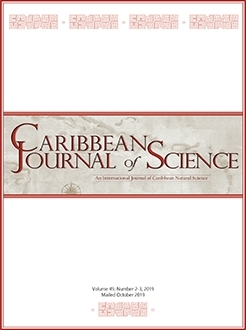This study is based on the behavioral responses of Leptodactylus albilabris tadpoles, a widely abundant frog native to Puerto Rico. We evaluated changes in habitat preference and activity levels in the presence of a predator (fish). Tadpoles were collected and allocated to one of three treatments: no fish predator, one fish (Astronotus ocellatus), and two fish. Results showed a significant decrease in activity levels of tadpoles and change in microhabitat use in the presence of a predator. However, there was no significant difference in tadpole activity when the second predator was added. The preferred habitat in the presence of a predator was leaf litter, even though L. albilabris tadpoles are benthic and usually favor hiding in the sediment. The larval stage of the anuran life cycle is the most vulnerable, and these changes in behavior increase the probability of escaping predators to reach metamorphosis and finally reproduce.
How to translate text using browser tools
8 June 2020
Behavioral Changes in Tadpoles of the Antillean White Lipped Frog (Leptodactylus albilabris) in the Presence of a Predator: Habitat Use Preference and Activity Levels
Diana C. López-Hernández,
Aura Y. Muñiz-Torres,
Kenneth X. Rodríguez-Rivera,
Alberto R. Puente-Rolón
ACCESS THE FULL ARTICLE

Caribbean Journal of Science
Vol. 50 • No. 1
August 2020
Vol. 50 • No. 1
August 2020




